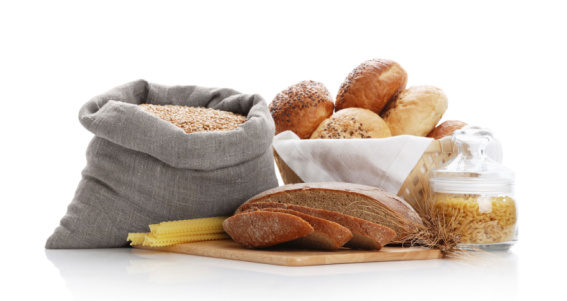Many independent natural products retailers are breathing a sigh of relief because gluten-free foods are boosting sales as the economy cuts customer counts. Life is good again, at least for a while. General Mills, which makes Betty Crocker-brand baking products, says its research shows that although one percent of the U.S. population has Celiac disease, 12% of U.S. households want to eliminate or reduce gluten in their diets. The company is shortly rolling out a new line of Betty Crocker gluten-free foods.
Marketing gluten-free foods is going to be easier and cheaper for General Mills because it will use digital tools instead of TV, magazines or newspapers to reach the gluten-free community. Digital access to metabolic communities, such as Celiac sufferers, may cut marketing costs by 90%. With digital media, it is worthwhile for the General to target niche segments of consumers who, in this case, will buy a projected $5 million worth of Betty Crocker gluten-free products, down from the $50 million minimum in sales the company normally needs to mass-market mainstream products nationwide.
To develop the products, General Mills food scientists baked over 1,000 pans of brownies, cookies and cakes using 75 different recipes. The company plans to roll out the new mixes nationally, which will sell for about $2 more than traditional Betty Crocker mixes. What do you think the impact will be on your customer counts when Betty Crocker gluten-free foods hit the shelves in every conventional supermarket? Oh, and there will be gluten-free Chex cereals, too.
Conventional supermarkets also are not standing still on gluten free. Hannaford supermarkets in the Northeast has shelf sets as large as 40 linear feet of gluten-free foods, publishes a gluten-free brochure with recipes, offers store tours and classes, and access to registered dieticians. In the Southeast, Publix supermarkets offers about 50 gluten-free recipes for breakfast, lunch and dinner along with a 10-page brochure listing hundreds of Publix private-label, gluten-free foods including vitamins and supplements.
Kroger, the nation’s second largest grocer after Wal-Mart, has a large offering of private-label, gluten-free foods, and its dieticians steer shoppers to traditional gluten-free brands, Celiac support groups, gluten-free cookbooks and other third-party resources. Wal-Mart boasts of its 800 gluten-free, private-label products.
In addition to private-label, gluten-free foods, most of these conventional supermarkets also carry the “authentic” gluten-free brands you typically have on your shelves. You will not be shocked to learn that the gluten-free brands you launched and supported in your store are happily shipping to large mass-market outlets as soon as they get the chance. Just like most other brands that have taken the same route through natural products stores on their way to the mass market. Bemoaning the unfairness of it all won’t change anything.
Marketing Is Different than Co-Marketing
But, before the air comes out the gluten-free sales balloon you are sailing right now, you might want to consider putting in place a strategy that gives shoppers deeper reasons to shop with you than the products you happen to sell at any given time. This strategy highlights the difference between “marketing” your store and its unique identity and value—separate and apart from the products you sell—and “co-marketing” your store as merely a pass-through for the third-party brands on your shelves.
It’s cheaper to co-market products than it is to market your store’s identity separately because manufacturers give you discounts, co-op ad dollars and other incentives. It feels like you’re getting off cheaply—until someone else starts carrying the same products. WF
Jay Jacobowitz is the president and founder of Retail Insights®, a professional consulting service for natural products retailers established in 1998, and creator of Natural Insights for Well BeingTM, a holistic consumer marketing service designed especially for independent natural products retailers. With 31 years of wholesale and retail industry experience, Jay has assisted in developing over 800 successful natural products retail stores in the U.S. and abroad. Jay is a popular author, educator and speaker, and is the merchandising editor of WholeFoods Magazine, for which he writes a regular column called “Merchandising Insights.” Jay also serves the Natural Products Association in several capacities. Jay is next scheduled to speak at Natural Products Expo East in Boston, MA, September 23–26 and will be available at Booth 531. He can be reached at (800)328-0855 or via e-mail at jay@retailinsights.com.
Published in WholeFoods Magazine, August 2009










